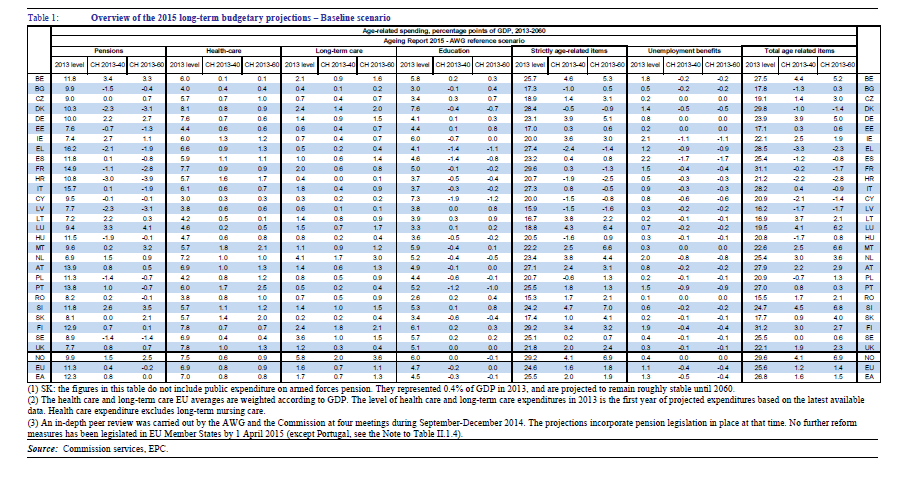European Commission, (2015), “The 2015 Ageing Report-Economic and budgetary projections for the 28 EU Member States (2013-2060)”, European Economy 3/2015, Mάιος 2015
Due to the dynamics in fertility, life expectancy and migration, the age structure of the EU population will change strongly in the coming decades. The overall size of the population is projected to be slightly larger by 2060 but much older than it is now. (4) The EU population is projected to increase (from 507 million in 2013) up to 2050 by almost 5%, when it will peak (at 526 million) and will thereafter decline slowly
(to 523 million in 2060). This increase would however not be the case without the projected inward migration flows to the EU. There are wide differences in population trends until 2060 across Member States. While the EU population as a whole would be larger in 2060 compared to 2013, decreases of the total population are projected for about half of the EU Member States (BG, DE, EE, EL, ES, HR, LV, LT,
HU, PL, PT, RO, SI and SK). For the other Member States (BE, CZ, DK, IE, FR, IT, CY, LU, MT, NL, AT, FI, SE and UK) an increase is projected.
In terms of drivers of the population changes, total fertility rates are projected to rise for the EU as a whole, though remaining below the natural replacement rate. At the same time, the projections show large and sustained increases in life expectancy at birth. In the EU, life expectancy at birth for males is expected to increase by 7.1 years over the projection period, reaching 84.8 in 2060. For females, it is projected to increase by 6.0 years, reaching 89.1 in 2060. Net migration inflows to the EU are projected to continue; first increasing to 1,364,000 by 2040, and thereafter declining to 1,037,000 people by 2060.
Σχετικές Αναρτήσεις
Natali, D. (2014) “Social developments report 2013: blueprint for a new European social agenda“, European Social Observatory (ESO), European Trade Union Institute (ETUI), 03 Ιουλίου.




